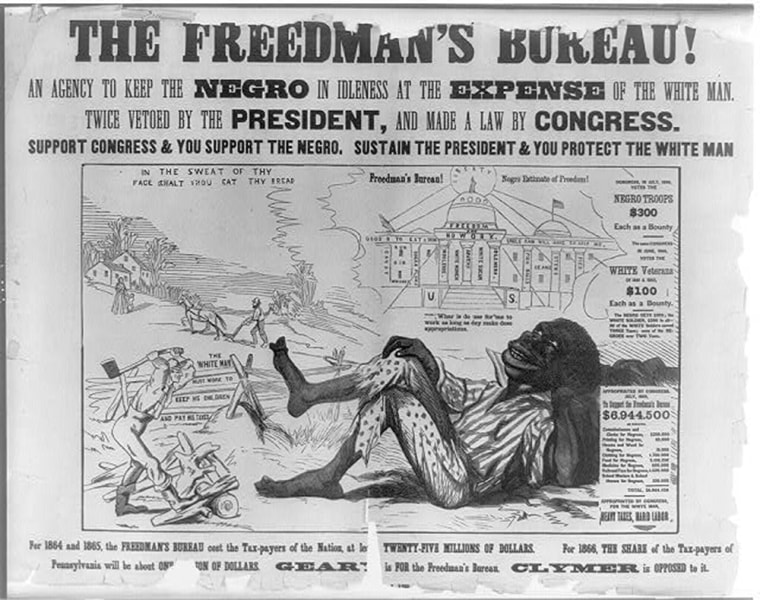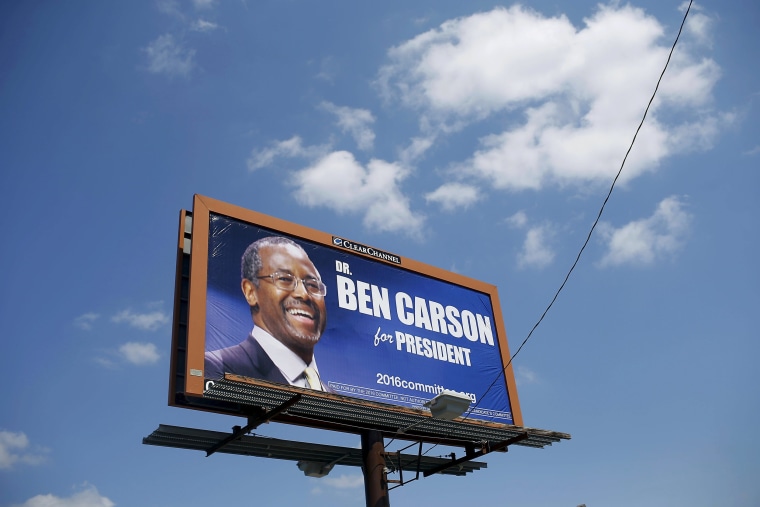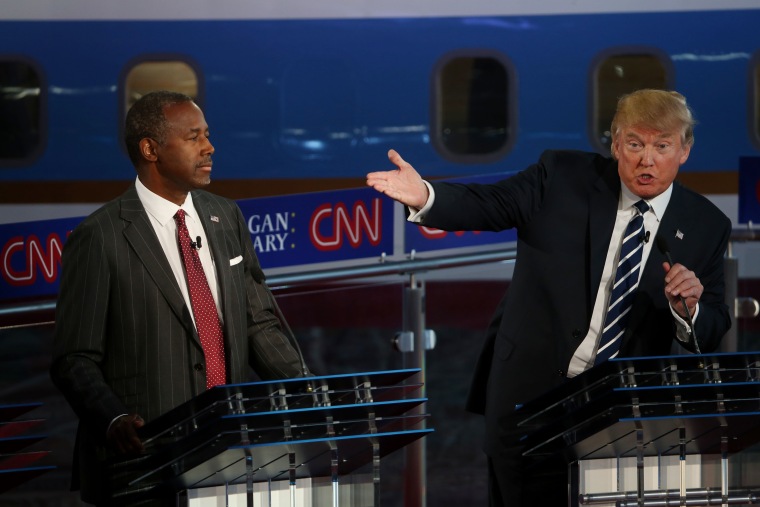Republican presidential candidate Donald Trump recently questioned the ability of Ben Carson, his new chief rival in the polls, to be president, saying, "I don't think Ben has the energy."
Trump has used this particular attack before, calling Jeb Bush “a very low-energy kind of guy,” but questioning a competitor’s “energy” carries very different historical resonances when directed at an African American candidate.
By "energy" Trump seems to be referring to Carson's calm demeanor and refusal to get into a shouting match with Trump and other candidates at the last Republican presidential debate. However, Carson operates under the same double bind as President Obama: that nothing kills white support of a black politician faster than seeming like an "angry black man.”
If elected Carson might well need to extend the employment of “Luther,” Obama’s fictional "anger translator" played by the actor Keegan-Michael Key.
But the history of saying that blacks lack energy goes much deeper than merely a cultural fear of black anger. Whether Trump is aware of it or not, the notion that black men lack “energy” has been a canard of racism since colonial days.
Trump managed, in casting doubts on the African American candidate’s “energy,” to tap into hoary old racist stereotypes of Asians, as well.
From the eighteenth through the early twentieth centuries, most Anglo-Americans, the only people then considered “white” in the United States, attributed their economic, political and social hegemony over blacks in large part to their supposed racial superiority as “Saxons.”
American Saxonists, like their English counterparts, shifted in the nineteenth century from from praising the social institutions of 18th century Germanic culture to claiming Saxons’ racial superiority.
In 1829, a young Ralph Waldo Emerson wrote that, “The African [race] have [never] occupied [nor do they] promise ever to occupy any very high place in the human family… The Irish cannot; the American Indian cannot; the Chinese cannot. Before the energy of the Caucasian race all other races have quailed and done obeisance.” [emphasis added] [iii]
According to American Saxonists, energy was on the short list of traits that Saxons possessed in a unique combination that rendered them superior to all other European and non-European ethnicities.

The full list included pride, intelligence, masculinity, and energy. “Pride” was supposedly what spurred Anglo-Americans to rebel against British tyranny, while a lack of pride was said to explain why blacks “submitted” to enslavement. A supposed lack of energy was said to explain black inability to compete with American free market capitalism.
An 1896 report on the condition of American negroes for the American Economic Association asserted that the race was characterized by “a lack of energy both physical and mental… and even in America under all the instigations of Aryan activity, the Negro race scarcely displays any voluntary energy of thought or work. It goes only so far as the whip of necessity drives . . . .”
Trump is no systematic thinker, to put it mildly. He is not David Duke of the KKK. He’s more akin to Archie Bunker...
The report concludes that “negroes” were better off in all ways under slavery, and that “thirty years of freedom in this country . . . have failed to accomplish the original purpose of the abolition of slavery, that is, the elevation of the colored race to moral, mental, and economic level of the white race.”
According to such logic, African Americans’ poverty and poor health in the years after slavery are due solely to the supposed laziness and incompetence that makes them unable to compete with Anglo-Saxons in the American economy.
Trump managed, in casting doubts on the African American candidate’s “energy,” to tap into hoary old racist stereotypes of Asians, as well. Trump’s claim that “Ben is a nice guy but…when you're negotiating against China, and you're negotiating against these Japanese guys that are going to come against you in waves… we need people that are really smart, that have tremendous deal-making skills and that have great, great energy."

Trump’s invocation of hoards of wily Asians against whom only American whites can effectively stand up resembles nothing so much as Lothrop Stoddard’s 1920 work, The Rising Tide of Color Against White World-Supremacy. Stoddard warned that, “If white civilization goes down…it will be swamped by the triumphant colored races…If the present drift be not changed, we whites are all ultimately doomed.”
Combined with his invocations of waves of Mexican rapists penetrating the nation’s borders in pursuit of the jobs (and the women?) of honest white working men, Trump’s world view in fact seems remarkably close to the global race war envisioned by Stoddard and his mentor, the eugenicist and race theorist Madison Grant.
Granted, Trump is no systematic thinker, to put it mildly. He is not David Duke of the KKK. He’s more akin to Archie Bunker, the entertainingly-bigoted white man in Norman Lear’s 1970s TV show “All in the Family”… Comical perhaps, until one imagines a Bunker presidency.
Ultimately, however, the significance of Trump’s current popularity among Republicans is the unmasking of the persistence in much of white America of a “Bunker” mentality.
Philip Kadish is an adjunct professor of English at Hunter College in New York City. He specializes in the impact of race science on American culture, and in October, 2015, he will receive his PhD in English from the Graduate Center of the City University of New York.
